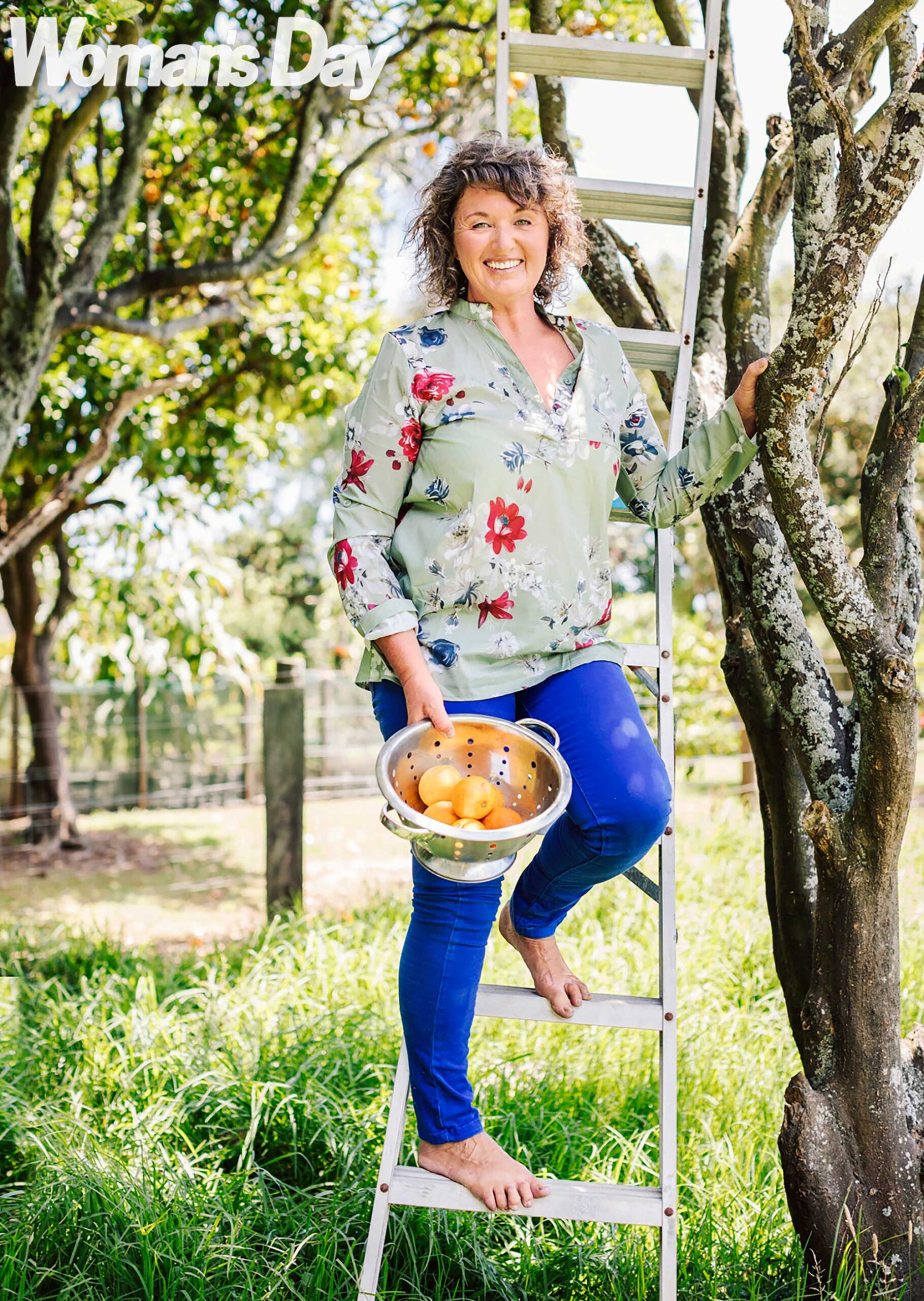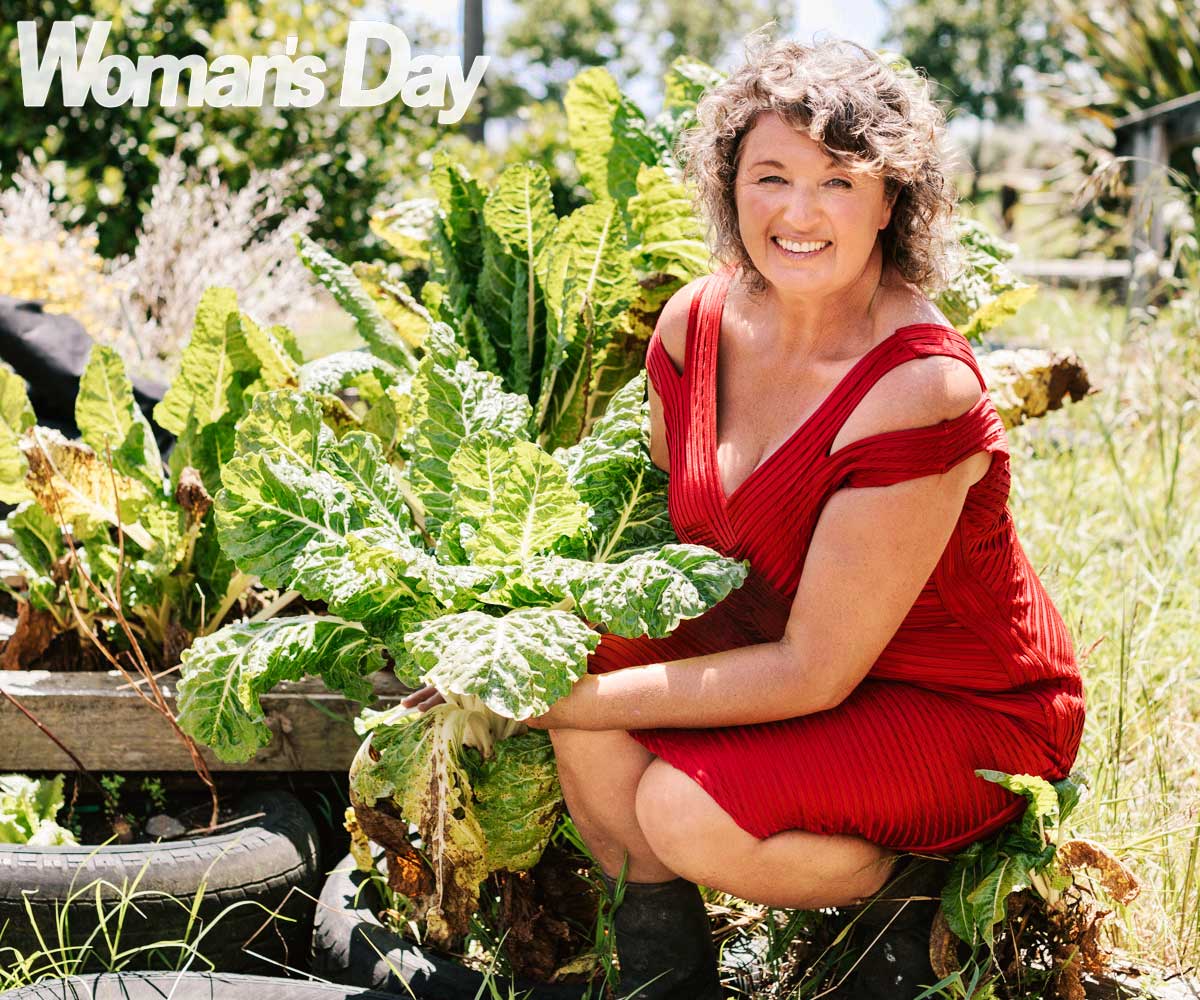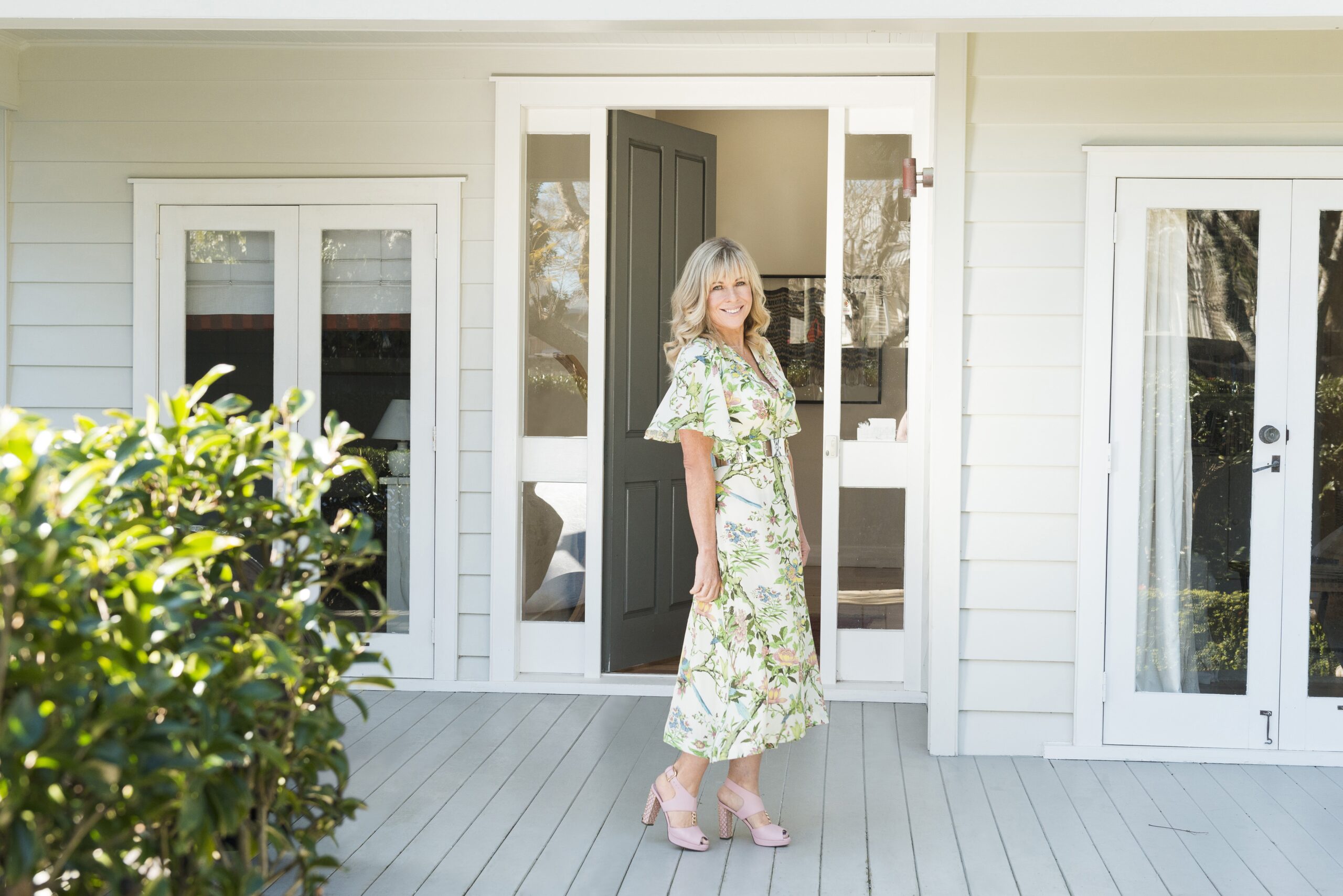Last year, Lyn Webster made a drastic move to prove she could save money. Scared she might lose the dairy farm she’d worked so hard to keep afloat, the penny-pinching grandmother wrote down a seemingly impossible goal – to live on a grocery budget of just $1000 for the year.
It meant sacrificing her favourite treats like chocolate and wine, trading food with friends and neighbours, foraging from the land and having to become very, very creative. But now, at the end of her successful 12-month mission, Lyn is determined to never visit a supermarket again.
“I called it the $1KYGS challenge – $1000 a Year Grocery Shopping – and it wasn’t hard at all. It’s been so positive,” beams the Kaitaia mother-of-two, 52, who was previously spending $300 a week on groceries for herself.
“It forced me to think of other options to survive because when you’re programmed to go to the supermarket for all your needs, you’re not pushed out of your comfort zone.”
Incredibly, she ended up beating her frugal goal for the year, with $12 left over. As a struggling sharemilker of 200 cows, Lyn was finding it hard to make ends meet.
“I had to cut back and started by looking at my supermarket spend, which was ridiculous.”
Realising she was forking out nearly $16,000 a year on supermarket items, she decided to slash her budget to a mere $100 a week in late 2017. “I was the kind of person who’d stop for one thing at the dairy and end up spending $50. It radically improved my finances overnight.”

Lyn’s baking takes the cake! Her daughters Stevie, left, 21 and Danni, 26, are proud of their mum’s budget-savvy lifestyle.
To keep her food bill down, Lyn began buying all her staple cooking ingredients – flour, yeast, soy sauce and cooking oil – in bulk from the wholesalers.
She learnt to make pastry from scratch for fresh pies and pizza, ate eggs from chickens wandering the farm and welcomed gifts of veges, duck and fish from generous neighbours. She also swapped beauty products like moisturiser and shaving foam for coconut oil, and used white vinegar as deodorant, conditioner and fabric softener.
Then baking soda became her go-to wonder ingredient. The cheap powder proved to be a successful substitute for laundry and dishwashing products, as well as toothpaste, soap and shampoo.
“You put a tablespoon in wet hair like you would with shampoo and then rinse it out,” she enthuses. “When you’ve done it for a couple of weeks, you realise your hair’s better than ever and you’ve spent no money!”
Lyn laughs, “It does have a little smell, but it seems to neutralise almost immediately. I’ve never had a boyfriend or hairdresser say I smell like a salad!”

From left: Danni, her daughter August-Rose, three, fiance Simon, 26, and son Taavi, seven, Stevie, her boyfriend Cody, 20, and Lyn.
As her eyes opened to the ease of shopping sustainably, she began writing a regular column called Pig Tits and Parsley Sauce for her local newspaper.
“It’s an old saying my mother used when we’d ask what was for tea,” she explains. “It stuck and I wrote and published a book under the same name.”
Lyn started a Pig Tits and Parsley Sauce Facebook page, documenting what she spent her money on, as well as sharing creative money-saving tips and cheap but tasty recipe ideas.
In January last year, she decided to take her newfound passion an incredible step further, trimming her grocery budget from $5000 a year to a drastic $1000. Astonishingly, it gave her just $20 a week to spend at the supermarket.
To achieve her hard-hitting goal, Lyn made all her bread from scratch and utilised milk from the cows, crafting her own butter and moulding shampoo bars from leftover cheese-making whey.
“Body-builders buy whey protein because it has so many proteins, vitamins and nutrients, and I’m putting that goodness into my hair and skin,” she tells. “I couldn’t believe how much I didn’t need the supermarket!”
A noodle maker is now a favourite kitchen utensil for Lyn, who uses it to churn pasta from a flour and water dough, which she pairs with animal protein and seasonal vegetables.
“The noodles are absolutely beautiful with a Thai sauce that’s made of garlic, ginger, soy and fish sauce, lime, brown sugar and chilli, plus it hardly costs anything if you buy from the wholesalers.”
The budgeting fanatic now appreciates every ingredient she uses and admits, “I get given a lot of stuff like duck and I used to pick the eyes out, but not one inch of protein gets wasted now! That includes vegetable peelings.”
As well as lessening the financial pressure, Lyn’s new habits have improved her overall health and reduced her imprint on the environment now she’s no longer buying plastic.
“I feel fantastic since I eat no processed food because I make everything myself,” she beams.
“I’m going to continue on this track and maybe by next year, my bill will be less than $1000!”

“When you’re programmed to go to the supermarket for all your needs, you’re not pushed out of your comfort zone,” explains Lyn.
Lyn’s top tips for low cost living
✦Add up how much you are really spending on groceries per week.
✦Set a reasonable limit for your family and stick to it.
✦Stay out of the supermarket.
✦Set up a buying consortium with friends for wholesale/bulk items and share the goods using recycled containers.
✦Grow the best garden you can – even in small pots on a balcony.
✦Never turn down free food, and forage for free stuff like dandelion, onion weed and watercress.
✦Don’t waste anything – use all parts of your fruit and veges – and use the freezer wisely.
✦Make your own bread, pizza bases, biscuits and crackers.
✦Most importantly, before buying, ask, “Do I really need it?” If the answer is yes, then ask, “Can I make it myself?”

Save Make Do by Lyn Webster (Penguin Group NZ), rrp $25. Available at all good bookstores.


